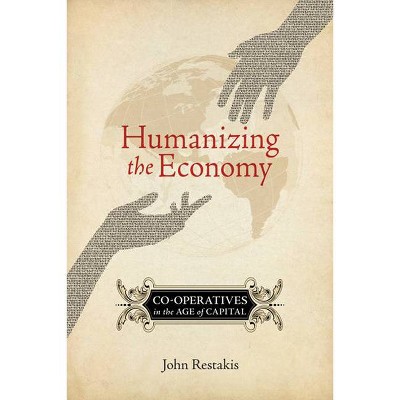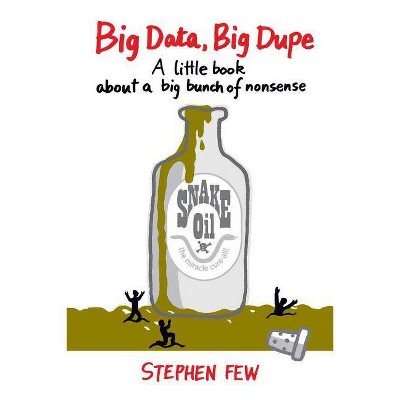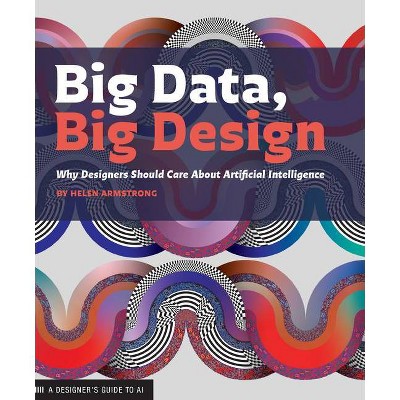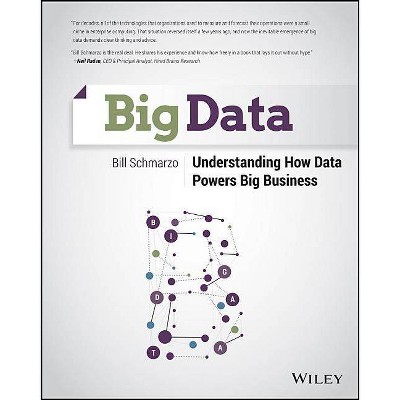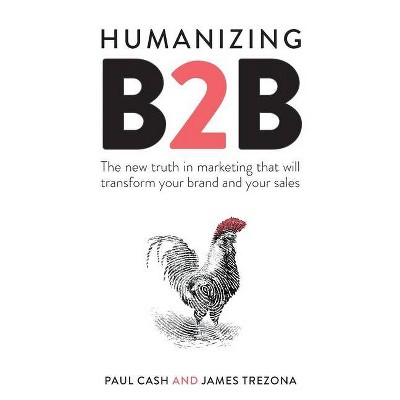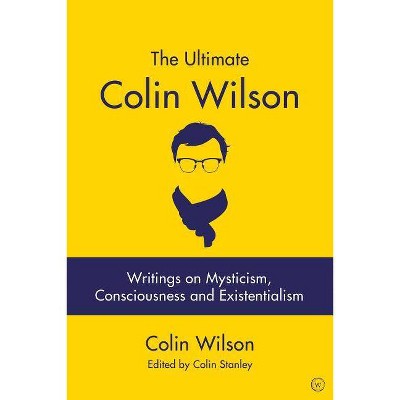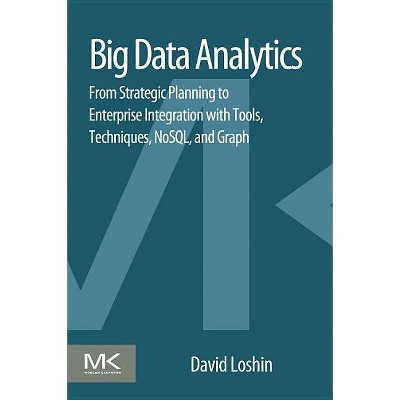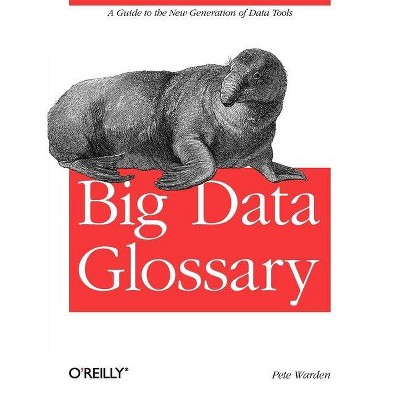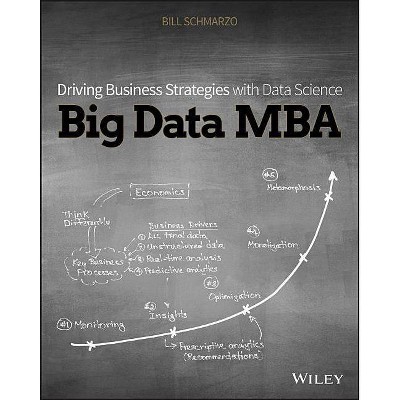Humanizing Big Data - by Colin Strong (Paperback)
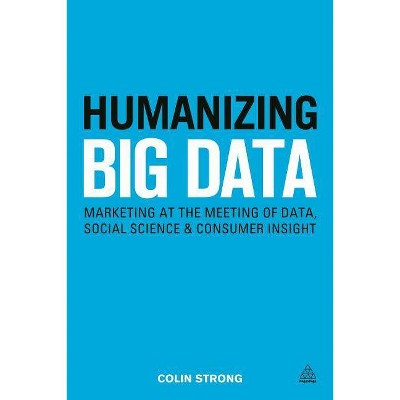
Similar Products
Products of same category from the store
AllProduct info
<p/><br></br><p><b> About the Book </b></p></br></br>Unlock the value of big data and realize the impact it can have both on customer understanding and better business performance with this authoritative guide.<p/><br></br><p><b> Book Synopsis </b></p></br></br><p>Big data raises more questions than it answers, particularly for those organizations struggling to deal with what has become an overwhelming deluge of data. It can offer marketers more than simple tactical predictive analytics, but organizations need a bigger picture, one that generates some real insight into human behaviour, to drive consumer strategy rather than just better targeting techniques. <b><i>Humanizing Big Data</i></b> guides marketing managers, brand managers, strategists and senior executives on how to use big data strategically to redefine customer relationships for better customer engagement and an improved bottom line. <p/><b><i>Humanizing Big Data</i></b> provides a detailed understanding of the way to approach and think about the challenges and opportunities of big data, enabling any brand to realize the value of their current and future data assets. First it explores the 'nuts and bolts' of data analytics and the way in which the current big data agenda is in danger of losing credibility by paying insufficient attention to what are often fundamental tenets in any form of analysis. Next it sets out a manifesto for a smart data approach, drawing on an intelligent and big picture view of data analytics that addresses the strategic business challenges that businesses face. Finally it explores the way in which datafication is changing the nature of the relationship between brands and consumers and why this calls for new forms of analytics to support rapidly emerging new business models. After reading this book, any brand should be in a position to make a step change in the value they derive from their data assets.</p><p/><br></br><p><b> Review Quotes </b></p></br></br><br>Colin Strong's book is a very thought provoking journey through the ways data can and is used, and whether it is desirable or indeed possible to use more traditional social sciences disciplines to understand what the data is really telling us. Strong's perspective is balanced throughout, with each chapter ending on concluding thoughts which bring together the themes discussed. The book is a very interesting precis of the all of the possible uses for data and the current shortfalls in our approaches.-- "Caroline Morris, Operations Director, Sky IQ for Business Partnerships"<br><br>Moving easily through this varied landscape, and drawing on an impressive array of case studies and academic papers, Colin Strong puts forward a compelling case that data can only take us so far; that what we do with data, and what data does to us, is a crucial, emerging piece of this important conversation around what's next for marketing. It seems, intuitively, that for all the hype and hoopla, if we as marketers want to really service those who are our customers, then we need to think of them less as datasets to be mined, and more as, well, humans, to be understood. I thoroughly recommend Strong's book to all those who have a desire to glimpse what a smarter, wiser and more informed digital marketing world may look like.-- "Dr. Guy Champniss, Professor of Marketing and Consumer Behaviour, Henley Business School, University of Reading, UK"<br><br>Strong has obviously read a great deal about big data and for those who like to think about ways to think about data (!), he provides lots of fodder by exposing the reader to a number of theories and their proponents in a straightforward, conversational style.-- "Joseph Rydholm, Quirk's Marketing Research Review"<br><br>The potential of big data has been the topic of many major theses in the last few years. We expect positive benefits in innovation, efficiency, public health and economic growth. However, the 'datafication' of society may also have negative effects, dehumanising and alienating people in their roles as citizens and consumers, turning them into passive 'data subjects'. If the benefits of big data accrue largely to governments and big corporations, then people-power may undermine the data revolution. In this brave new world, companies are pulled in two directions - do they make money from the vast quantities of data they are able to gain from interactions with their customers, or focus on preserving the intangible benefits of goodwill and positive brand orientation by respecting customers' autonomy and privacy preferences? Colin Strong's 'Humanizing Big Data' marches into this minefield with cogent analysis and thoughtful advice for management and marketing about the new breed of information-aware consumer.-- "Kieron O'Hara, senior research fellow in Electronics and Computer Science at the University of Southampton"<br><br>This book manages to take the reader gently by the hand and give them an informed introduction to the world of big data, showing them how it can be utilised in business through a marketing-led perspective.... This is a very open, clear book that gives you a lot to think about.-- "Darren Ingram Media"<br><br>This is a grown-up, wide-ranging, practical guide to the new marketing opportunities created by big data - but also to its perils, pitfalls and limitations. Strong is an experienced and accomplished consumer researcher able to steer a path between the techies' hype and the skeptics' underestimation of the potential. He aims to humanise big data by showing how analytics need to be combined with marketers' understanding of customers as real people as well as with an implicit or explicit conceptual framework, ideally grounded in solid behavioural insights....It's a short book that packs in a lot of practical wisdom.-- "Patrick Barwise, Emeritus Professor of Management and Marketing, London Business School"<br><p/><br></br><p><b> About the Author </b></p></br></br><b>Colin Strong</b> is a leading UK-based consumer researcher who has worked with a wide range of global brands to help shape their consumer strategies. Consumer data is an essential component of Colin's role, both in terms of using it to drive insight that was once the preserve of surveys and to advise on ways to shape new consumer brand relationships. Behavioural science runs throughout his research practice, not only to design experimental approaches, but also to guide data analytics. Colin is also a regular speaker at conferences and a contributor to publications and blogs including those of ESOMAR, the Market Research Society, <i>The Huffington Post, Wired, AdMap</i> and <i>Market Leader.</i>
Price History
Cheapest price in the interval: 27.99 on October 22, 2021
Most expensive price in the interval: 27.99 on December 20, 2021
Price Archive shows prices from various stores, lets you see history and find the cheapest. There is no actual sale on the website. For all support, inquiry and suggestion messagescommunication@pricearchive.us
